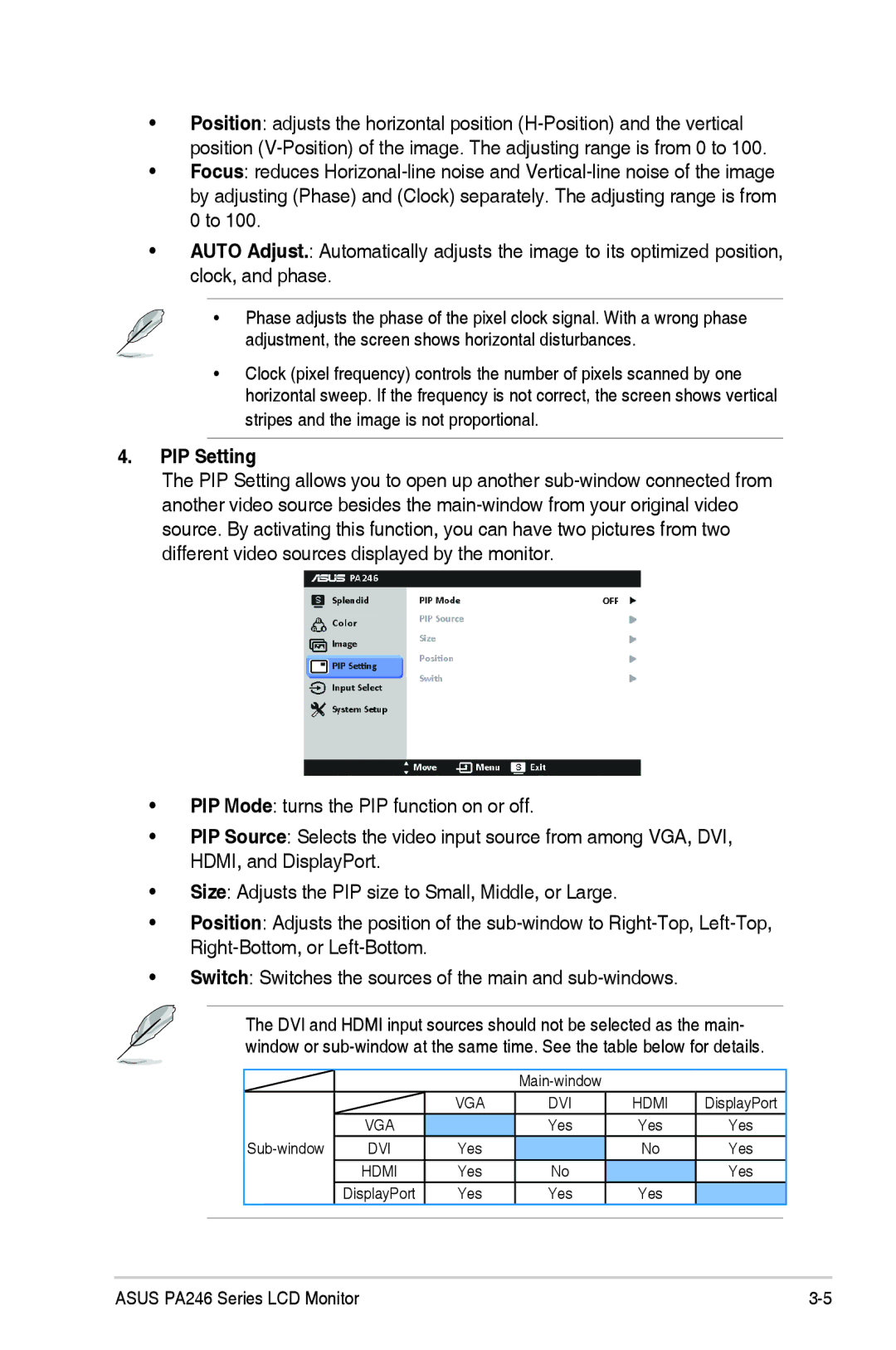
•Position: adjusts the horizontal position
•Focus: reduces
•AUTO Adjust.: Automatically adjusts the image to its optimized position, clock, and phase.
• Phase adjusts the phase of the pixel clock signal. With a wrong phase adjustment, the screen shows horizontal disturbances.
•Clock (pixel frequency) controls the number of pixels scanned by one horizontal sweep. If the frequency is not correct, the screen shows vertical stripes and the image is not proportional.
4.PIP Setting
The PIP Setting allows you to open up another
•PIP Mode: turns the PIP function on or off.
•PIP Source: Selects the video input source from among VGA, DVI, HDMI, and DisplayPort.
•Size: Adjusts the PIP size to Small, Middle, or Large.
•Position: Adjusts the position of the
•Switch: Switches the sources of the main and
The DVI and HDMI input sources should not be selected as the main- window or
|
|
|
|
|
| |
|
|
| VGA | DVI | HDMI | DisplayPort |
|
| VGA |
| Yes | Yes | Yes |
| DVI | Yes |
| No | Yes | |
|
| HDMI | Yes | No |
| Yes |
|
| DisplayPort | Yes | Yes | Yes |
|
|
|
|
|
|
|
|
ASUS PA246 Series LCD Monitor |
